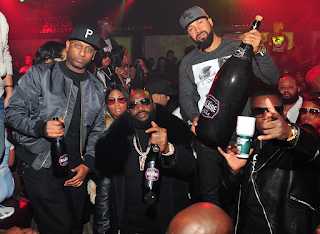hf346318@ohio.edu
Hunter Folks
Ethical Conflicts
Conflicts of interest are incredibly difficult to navigate in the journalism industry. In traditional journalism, organizations and individuals have well defined codes of ethics to look towards for guidance in potentially compromising situations. While these codes of ethics do not have a standard across the industry, they do provide a reference with which journalists can guide themselves.
However, things get murkier once you enter the realm of music journalism. For journalists themselves, even more so. The community is small, and simply representing a large media company will not get you in the door like it will in other parts of the media industry. Instead, building and maintaining relationships with key individuals with inside access to musicians is considered standard. This behavior is at the root of music journalism, and where the ethical dilemma begins.
Some of the most famous ethical dillemas within this industry are pay to play or “payola” schemes. Most recently, Sony BMG Music Entertainment was involved in a scandal where they were caught paying employees of radio stations to give more airtime to their featured artists. This is the oldest and arguably the most easily identified type of ethical conflict within the industry.
Breaking Tradition
In traditional journalism, giving or receiving any gifts in exchange for information or the potential for information is considered unethical. In music, extravagant dinners and lavish album release parties are standard. Oftentimes to interact with individuals in the industry requires accepting some sort of gift to even get in the room. Additionally, the industry has a long memory and strict control over who can access information. This means that a harsh negative review or op-ed can result in being blackballed nearly industry-wide. Unlike other types of news that often has multiple avenues for information gathering, being blackballed in music journalism would mean a complete lack of access to any information in a timely manner.
There is also the dilemma of paying for access to address. Industry events do not follow a standard system, although they tend towards specific event types. Oftentimes the most pressing new information is found at up and comers album release parties, or clubs. These are not always free events. If you are not a large and favorable news outlet, you likely will not always get in for free. That is if you can get in at all.
They Know What They're Doing
The music industry very purposefully sets up journalists to get caught in a web of ethical issues. When your job is to report on industry happenings, oftentimes you can be put into a position where you are forced to make choices that do not have a completely ethical answer in the frame of traditional journalism. A poor review of a label’s artist could result in having to pay to access information-rich events in the future. In that situation, curtailing your review or paying for access are both traditionally unethical, but you still must make the choice.
Fortunately, I believe the solution is simple and already commonplace even if it is not acknowledged. The idea of ethics is based around our cultural standards, norms, and values. In music, the behaviors mentioned previously are standard. I believe it is a journalists duty to navigate in the most ethical way possible, however, exceptions to traditional rules can be made if the industry demands it. For example, in the video game industry it is standard for reviewers to be provided copies of the game for free, and ahead of release. While this is a “gift”, it is so normalized that reviewers consider it an expectation rather than a “gift”. If party invitations and paying for event access is considered standard in music journalism, then it is the journalist’s responsibility to judge every dilemma and decide if it goes above the standard.

No comments:
Post a Comment